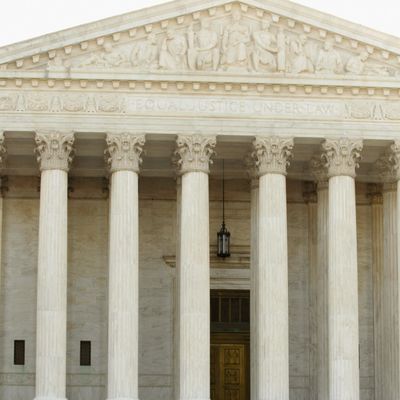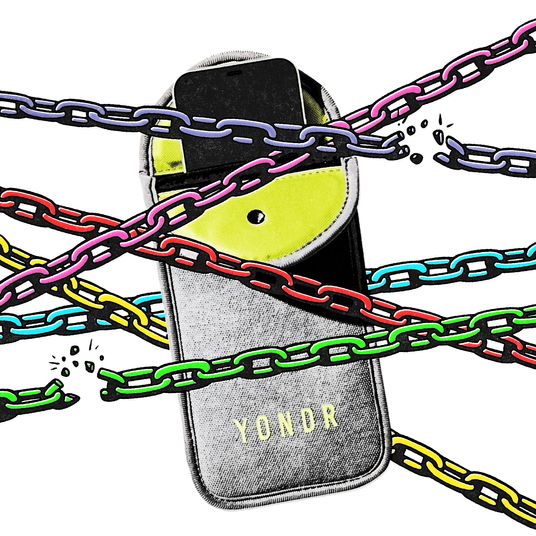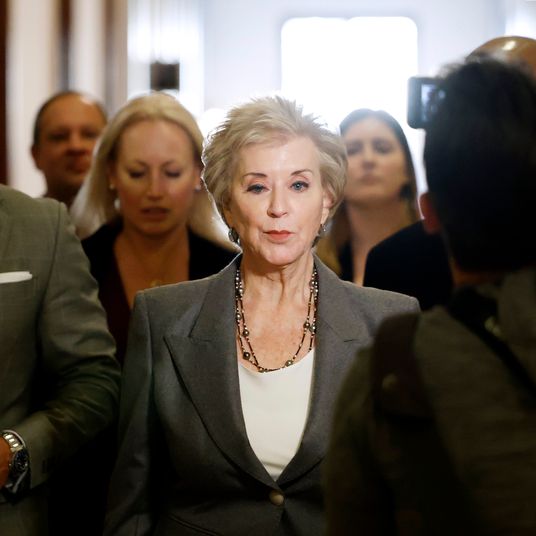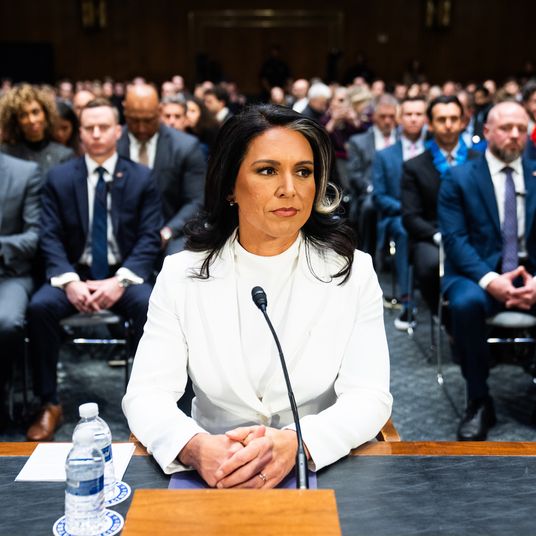
The D.C. Circuit just agreed to hear the Halbig lawsuit. The short explanation of what this means is that it has closed off the easiest path to crippling Obamacare. Here’s the long explanation:
1. The Halbig lawsuit is the right’s most recent desperate effort to retroactively nullify the Affordable Care Act. The lawsuit is a wildly tendentious argument that, based on an extremely narrow reading of one ambiguous passage in the health-care law, people in states with federal-run insurance exchanges should be ineligible. Since the tax credits make insurance affordable for most consumers, the lawsuit would wreck the exchanges for some 6.5 million people, which is its entire point.
2. The Halbig suit has previously been laughed out of court, but in July, two out of three judges from the D.C. Circuit agreed with it. This ruling reflected the luck of the draw — the two judges were Republican appointees on a court consisting mostly of Democratic appointees.
3. This created a split, with some courts dismissing Halbig and another one embracing it. The split created an obvious window for the Supreme Court to take up the case — contrasting opinions between Federal Courts is a common reason for the Supreme Court to take up a case.
4. The split would close if the entire D.C. Circuit took up the case. In important cases with split decisions, the entire court usually weighs in. Conservatives desperately wanted to avoid this, for the reason stated above. They undertook a furious public campaign (see, for instance, here and here) to persuade the Court not to hear Halbig as a whole. Their rationale is that the Halbig lawsuit is not legally important enough to merit a full hearing. That argument is as ridiculous and transparently partisan as it sounds. Nicholas Bagley explains why here.
5. What happens next is that the entire D.C. Circuit will hear the case. Since the logic of the lawsuit is so ludicrous only a wildly partisan Republican jurist would ever accept it, it stands zero chance of success.
6. After that, Federal Courts will be unanimous in opposition to the Halbig lawsuit. The Supreme Court could still take up the case then, but it could just as easily decide not to hear it.






























